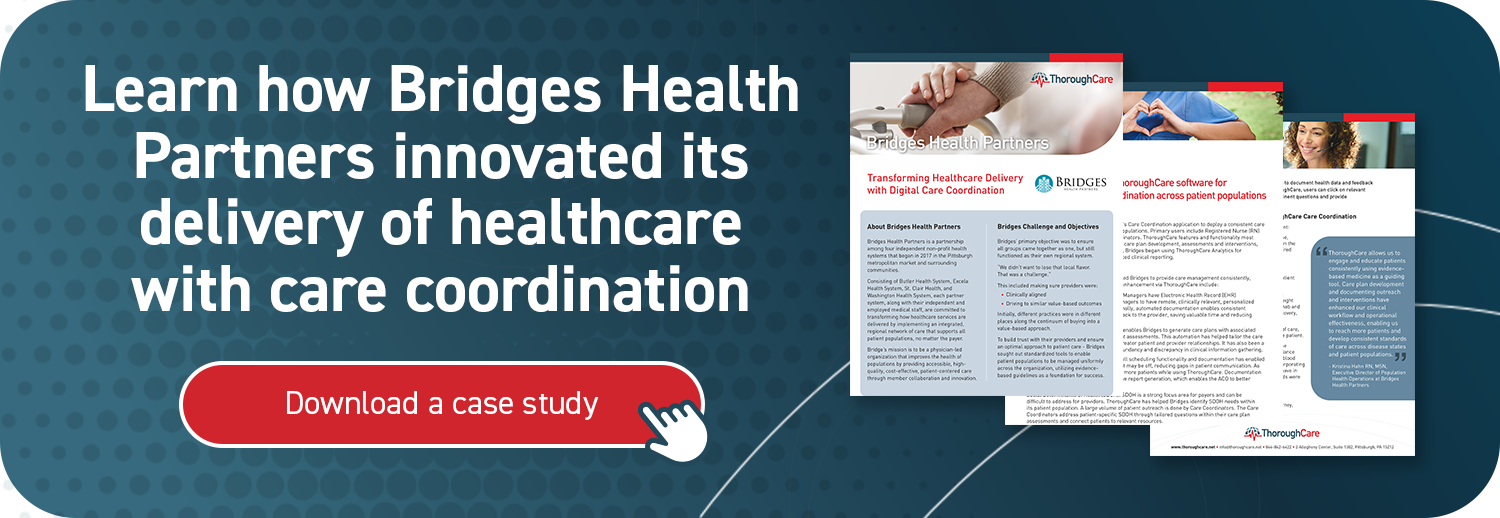Value-Based Care | Physician Practice
Your Physician Practice: Modernizing Yet Independent
Independent physician practices remain a significant piece of the US primary care system, despite a trend by health systems, hospitals, and private equity firms to purchase and absorb these offices. According to research from the American Board of Family Medicine (ABFM), between 2017–2019, 81% of family physicians still worked in independently-owned practices.
However, longstanding physician payment policies and quality measures tied to reimbursement continue to disadvantage independent practices. This is despite numerous studies that indicate the care delivered by independent practices is equal to or better than that of practices owned by hospitals and health systems.
Why physicians stay independent
The reasons why physicians stay independent vary and are quite personal.
At a time when the healthcare system is pushing for integration and consolidation, these physicians have more of an entrepreneurial spirit. They want more control over their work and time flexibility. They want to profit more from their effort, creativity, and innovation. And they want to stay nimble and agile, avoiding red tape to make changes. Most importantly, many physicians point to the community as a big reason why they remain independent.
Zuhdi Jasser, MD, head of Jasser Comprehensive Care in Phoenix, Arizona, and chair of the AMA Private Practice Physicians Section Governing Council, expressed this reasoning well during an AMA interview. “The bottom line is that my independent practice is intertwined with my desire to practice medicine and my personality,” he said.
This connection to the community leverages the independent physician’s unique position to identify issues and create special programs, services, and solutions that fit their patient population.
Strategies to support and grow independent practices
While independent physicians face several challenges, there are opportunities to strengthen their practices, stay competitive, and diversify revenue. The move toward value-based arrangements, chronic care management, population health management, and advanced primary care models can enhance a practice’s financial health and contribution to patient wellness.
Here are three strategies to consider:
1. Participate in alternative payment models
These can include patient-centered medical homes (PCMHs), physician-led accountable care organizations (ACOs), and the Medicare Shared Savings Program (MSSP).
The Medicare Shared Savings Program (MSSP) enables ACO providers to receive payment aligned with how well they can improve patient outcomes and control costs. Research shows that independent practices can achieve these goals.
Additionally, value-based arrangements with independent practices through ACOs can enhance market competition. A Health Affairs study found that too much financial integration and consolidation can have anticompetitive effects that drive up healthcare prices.
2. Become a part of larger networks
Join a clinically integrated network (CINs) or ACO, or form partnerships with other practices and specialties like pharmacists.
One example is Mark Miller, MD, a family medicine physician who runs Tru Health Family Care in Fayetteville, Arkansas. He preserved his practice autonomy by participating in an ACO that had formed a clinically integrated network (CIN), combining employed physicians and local independent physicians into one group for contract negotiations, quality improvement activities, and quality performance reporting.
3. Diversify revenue sources
Practices can do this by adding services beyond the clinic (e.g., nursing homes or hospice), adding complementary or concierge services (e.g., cosmetic procedures), or subleasing office space to other health practitioners (e.g., mental health, physical therapy, massage).
Physician leaders at the Holston Medical Group, an independent physician group serving 350,000 patients in the Appalachian region, facilitated innovation by engaging their physicians. When assessing how care and financial opportunities aligned with their patient population, they focused on strategies like partnerships in precision medicine, invested in a health information exchange (HIE), developed a care transition team, and emphasized annual wellness outreach strategies.
Again, Dr. Miller pursued diversifying his practice’s offerings to meet the community’s needs and wants. He added three nursing homes to his clinical practice, subleased office space to a therapist, and added several cosmetic procedures.
Some practices have launched chronic care management services and partnered with area pharmacists as part of the clinical delivery team. Others have engaged in value-based care by bringing behavioral health integration (BHI) to their practice.
Deploy a practice-driven approach to modernization
Modernizing in today’s environment is challenging. However, rather than be driven by the latest technologies, an independent physician practice may choose to investigate and invest in tools and solutions that align with patient care and financial priorities. Technology decisions should directly relate to a business objective that supports practice revenue and growth.
Physician leaders and owners can look to accelerating trends to determine how to turn challenges into opportunities. Going forward, CMS-driven objectives for Medicare and Medicaid will continue to shift focus to value-based care and advanced primary care models.
Health plans will pay more attention to physician panels and performance measures as part of contract negotiations. And the increasing prevalence of chronic conditions, an aging population, and behavioral health needs will continue to propel practices to engage in new models of care and create new clinical services.
Stay independent and competitive with ThoroughCare
By 2030, estimates project that innovative reimbursement, care, and ownership models could capture as much as a third of the US primary care market. Independent practices that can diversify revenue sources, prove their value through data analytics, and demonstrate that value through quality performance and cost efficiencies, can modernize while maintaining their freedom.
ThoroughCare’s comprehensive care coordination platform offers intuitive digital tools for independent practices. ThoroughCare can help streamline care coordination and chronic disease management, utilize data for effective reporting and operational efficiency, and maximize value-based payment models.
By using ThoroughCare, independent practices can modernize patient care by supporting access beyond the office, at a continuous pace, while transitioning their business to an alternative payment structure.




